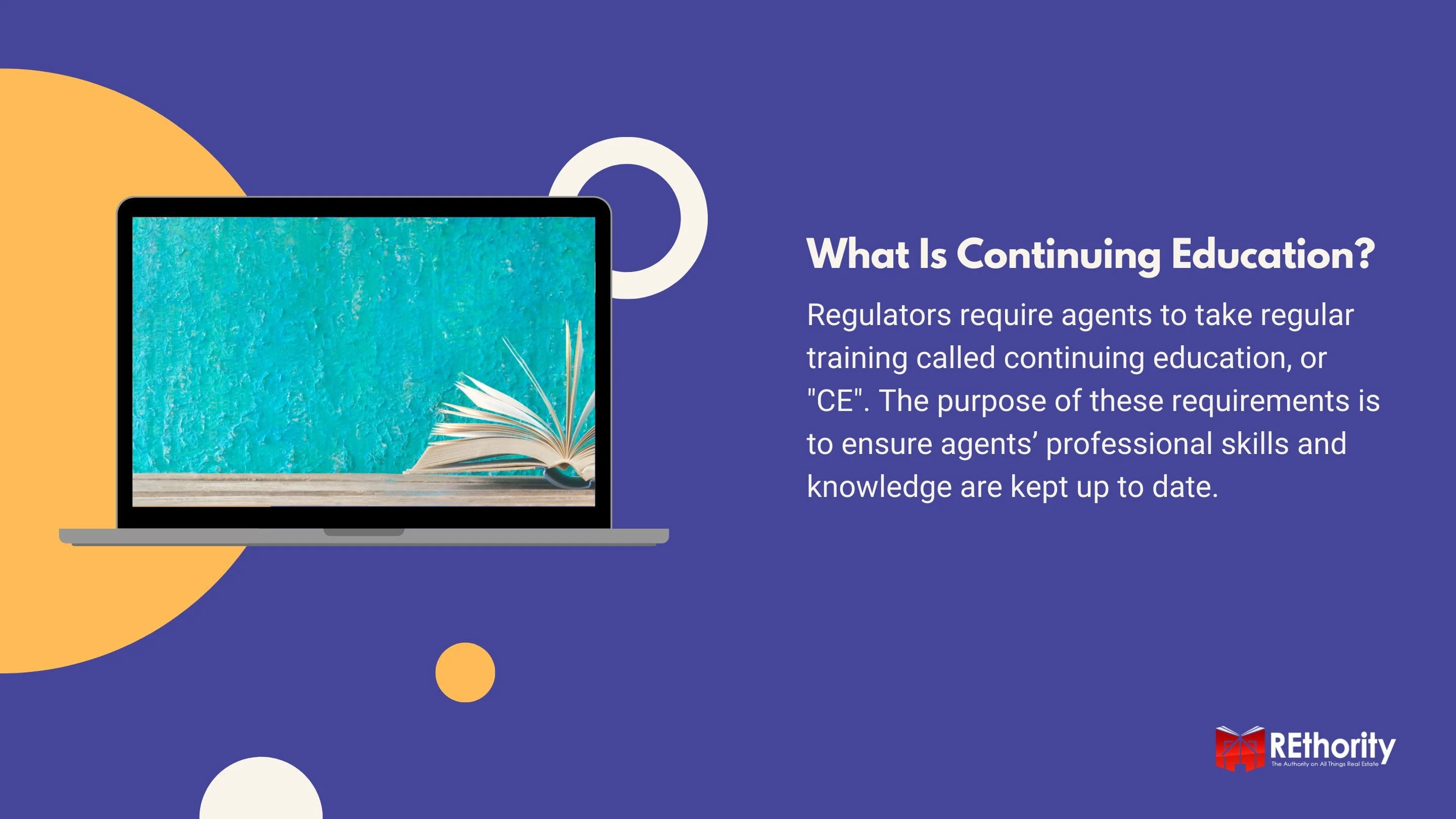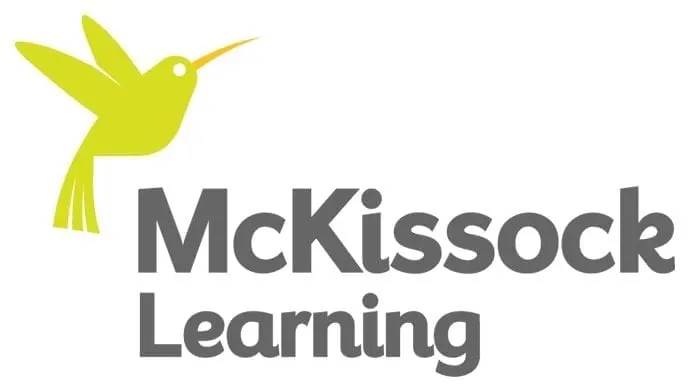Real estate continuing education is often discussed but seldom understood.
It exists to protect both you and your clients, and it is more than just a boring class to sit through.
Read on to learn more.
What Is Continuing Education?
To practice most real estate duties, you must be licensed. Although you learn the most recent rules and regulations in your licensing classes, these change over time.

For this reason, regulatory bodies require agents to undergo regular training called continuing education, or “CE.”. The purpose of these requirements is to ensure agents’ professional skills and knowledge are kept up to date.
The practice of real estate is ever-changing and in order to keep up with changing environment, education is key. Not to mention, imperative in order to keep your license in good standing. – Denise Supplee, agent and SparkRental.com founder
A good professional is constantly learning new material, of course. Real estate markets, technologies, and financing are constantly changing, and smart agents learn these changes to better serve their clients.
Regular self-education not only makes you a better agent but also helps you avoid being passed by your competition. And many new technologies and software can make your life easier and more productive.
From an agent’s viewpoint, state-required CE may seem less interesting than voluntary professional development. However, continuing education courses are required for license renewal.
Your Real Estate CE Requirements
The first step to getting your necessary credits is to understand your own state’s CE requirements.
State real estate authorities set the rules for this, so the only way to know what’s required is to check your local real estate commission’s website.
However, as the authority on all things real estate, we’ve made it a little easier for you. Simply click on your state to see your local real estate continuing education requirements.
The websites for many real estate schools have lists of state real estate commissions and contact information. Simply clicking on the name of the state where you work will take you directly to the information you need.
Contact Your Local Agency
In some cases, you may need to contact the real estate regulatory agency by phone, mail, or in person. The procedure for doing this will be on the agency website.
The key CE information to get from a real estate commission website includes:
- Rules for renewing your type of license, such as sales agent or real estate broker
- Date by which you need to renew
- The number of hours of CE you need
- Specific courses that have to be part of your CE
- Fees for renewal
- CE schools approved by the real estate commission
Pay Attention
Pay close attention to all of these. The state may call for agents and brokers to get different amounts and types of real estate continuing education.
In Illinois, for instance, managing brokers must take 24 hours of CE every two years. Brokers, on the other hand, only need 12 hours.
It’s also common to have different requirements for agents renewing their license for the first time.
In Florida, agents renewing their license for the first time must take 45 hours of CE and take a test. The second and subsequent years only call for 14 hours.
Complete Your Continuing Education in Time
Due dates also vary widely by state. In some states, the CE must be completed on the day the license expires.
Other states may require the coursework to be done a week or two before expiration. This gives us enough time to issue a new license before it expires.
Many real estate licenses have to be renewed every two years. In Texas, real estate licensees renew every two years. This must be done by the end of the month during which the license was initially issued.
Many states leave it up to the licensee to know when to renew. Texas licensees get a renewal notice 90 days before the license expires. Until you get this notice, you can’t renew.
Real Estate Continuing Education Courses

Rawpixel.com/Shutterstock
States also have widely accepted rules on required and elective real estate CE. California agents’ first renewal calls for five three-hour courses on ethics, agency, trust fund handling, fair housing, and risk management.
California Example
California agents also need 16 clock hours of consumer protection courses to renew. Another 14 hours on either consumer service or consumer protection complete the required 45 hours.
Courses on ethics, changes in the law, and fair housing are required by many states. Other common mandatory topics include fraud, sexual harassment, and discrimination.
Topics Vary
Many CE rules call for about half the hours of real estate education to be electives. These could be market trends, social media, personal safety, or other topics of interest to real estate professionals.
Note that real estate regulators also often require a minimum amount of seat time. That is, students have to spend a certain number of hours actually working on the course.
Tip: It may be tempting to sign up for an online course and only study just before the test. However, online course software tracks the time students spend engaged in the course content. Real estate officials may disqualify students who don’t take part in online class activities.
Finding a Provider

Garagestock/Shutterstock
Real estate authorities won’t take CE from just any school. For your CE to count for license renewal, it has to come from a state-approved provider. States maintain lists of approved CE providers.
You can typically check your state’s list of approved providers by looking at the website or contacting the state commission or department of licensing.
Many CE providers deliver their instruction online. But there should also be face-to-face classroom options available.
Continuing Education Cost
CE fees are usually modest compared to the value of maintaining a real estate license. However, they can vary significantly depending on the state and the provider.
The 18 hours of CE courses to renew a Texas agent’s license, for example, cost about $140 from The CE Shop. The same school charges $130 for a 22-hour course for New York agents doing their first renewal.
The point of doing CE is to renew a license. So, although renewal fees go to the state instead of the school, it’s still part of completing the process. The state renewal fees are often about as much as the cost of the CE.
Texas, for instance, charges sales agents $110 for the renewal. If the license has expired, the cost goes up. Texas charges $143 to renew an agent license up to 90 days after the expiration date. From there, for up to six months, it’s $176. Up to two years late, the fee is $190.
Tips from the Pros
There’s no better way to learn about a topic than to turn to the pros. We asked a few industry professionals for their opinions on continuing education, and they delivered some interesting answers.
Take Free Classes
Find free classesYou can often find CE courses for free. In NYC, title companies often organize them as a way to build relationships with agents and attorneys. Individual attorneys will also often host them for free as well.. With a little digging, you should be able to avoid paying for CE courses.
— James McGrath, Broker and founder of Yoreevo
Online Courses Are Convenient
I have done online courses. They are not interactive and you cannot ask questions. They also tend to be dull as dull can be. They are convenient as you can do them from home at whatever hour you so desire.
— Bill Tierney, Agent at Coastal Countryside Properties
Ask Lots of Questions
I have not taken online CE courses. I find that in-person courses are more engaging and offer better opportunities to ask questions.
— Deborah Dorsey, Agent at Berkshire Hathaway
Know Your Learning Style
For some, a physical class may appeal. To many, online classes allow for state requirement fulfillment, while accounting for busy schedules. I do suggest not procrastinating until an immanent license renewal as often 15-25 clocked hours are mandated. Research varying course providers catering to your state or local areas.
— Michael Kelczewski, Broker at Brandywine Fine Properties Sotheby’s International Realty
Our Favorite Real Estate CE Program

Real estate agents can view CE as an inconvenient burden or an opportunity to update their skills. Either way, it’s a necessary part of any real estate career. Working in real estate requires a valid license from the state.
Planning ahead and making sure to complete required CE courses before a license expires is the only way to keep it that way. Once you understand your requirements, it’s time to choose a provider.
Personally, we love the flexibility of McKissock Learning. Not only is their material interesting, but you can complete the courses anywhere. For that reason, we highly suggest checking them out. You won’t be disappointed!

